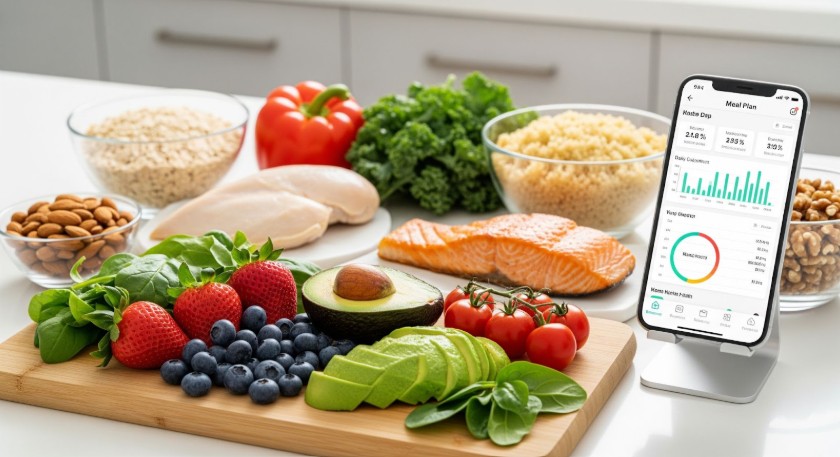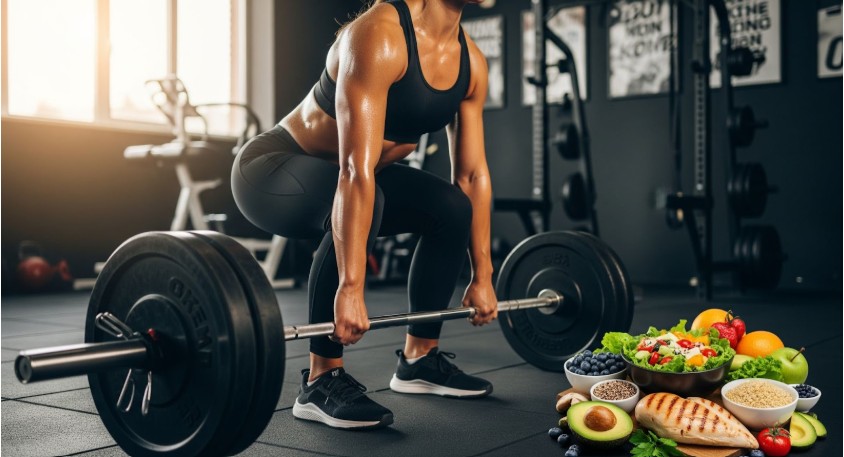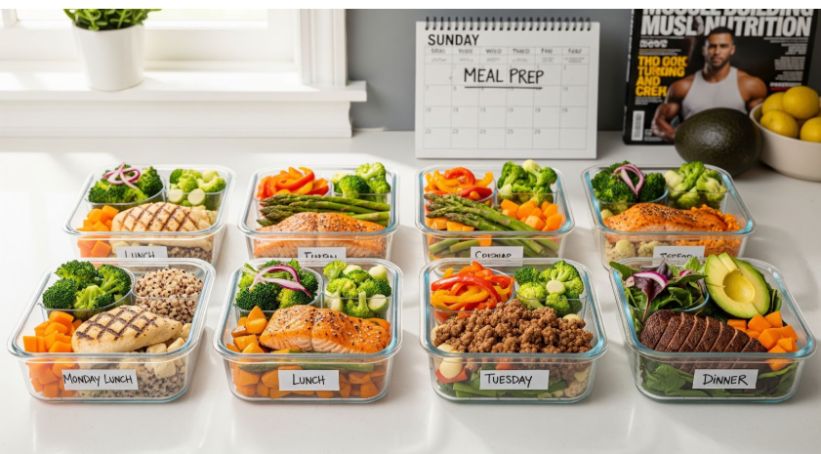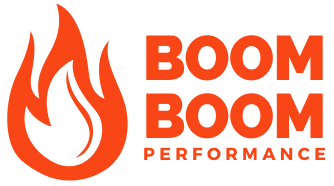
I get it. The world of nutrition can be overwhelming. You read one article that says carbs are bad, and then you find another one claiming they’re essential for energy. You’re bombarded with advice on keto, intermittent fasting, and everything in between, and it’s hard to know what’s true and what’s just another fad.
A while ago, I was in your shoes. I was trying to figure out how to eat to stay lean and perform at my best, and like many of you, I had tons of questions. That’s when I realized that many of the questions I had were probably the same ones you have.
So, today, I want to break down the 7 most frequently asked questions on nutrition that I get from my followers, clients, and friends. I’m going to clear up some confusion and give you straightforward answers that will help you make better decisions about your diet.
1. What’s the Best Diet for Fat Loss?
The best diet for fat loss isn’t about finding the latest trendy diet—it’s about sustainability and calorie control. Here’s the truth: there’s no one-size-fits-all approach. Whether it’s intermittent fasting, keto, or carb cycling, what works for one person might not work for you. The key is to find something that fits your lifestyle.
For me, intermittent fasting has worked wonders. The flexibility of having an eating window that fits my routine has helped me stick to it for the long term. But if you’re someone who thrives on a higher carb intake for energy, something like carb cycling or a balanced diet might work better.
The most important thing? Consistency. Track your food, find what works, and stick to it.
2. Are Carbs Really the Enemy?
Ah, carbs. You’ve probably heard that carbs are the culprit behind fat gain, but here’s the thing—carbs aren’t the enemy. In fact, they’re your body’s preferred fuel source, especially when you’re working out or being active. Cutting out carbs entirely isn’t necessary unless you’re following a specific diet like keto.
For me, carb cycling has been a game-changer. I increase my carb intake on training days to fuel my workouts and promote recovery, and lower them on rest days to help burn fat. This allows me to maintain muscle while shedding fat. So, no, carbs aren’t the enemy, but the right carbs at the right time are important.
3. Should I Eat Fewer Meals a Day?
This is where intermittent fasting comes into play. The idea that you need to eat 6 small meals a day to “keep your metabolism running” is a myth. I’ve personally found that intermittent fasting (IF) has helped me manage my hunger, stick to my calories, and stay lean without stressing over meal timing.
With IF, you typically fast for 16 hours and eat in an 8-hour window. This gives your body time to focus on burning fat while also making meal prep simpler. You don’t have to eat constantly to stay lean. In fact, fasting gives your digestive system a much-needed rest, which can improve overall health and energy.
4. How Much Protein Do I Really Need?

Protein is key for muscle repair, growth, and fat loss. The amount you need depends on your activity level, but a general guideline is 1.6–2.2 grams of protein per kilogram of body weight. So, if you weigh 75 kg (165 lbs), you should aim for 120–165 grams of protein per day.
For me, getting enough protein has always been a priority. I make sure to include protein-rich foods like chicken, fish, eggs, and legumes in my meals, especially after workouts. If you’re struggling to hit your protein goals, a protein shake is an easy way to supplement.
5. Is Fat Bad for You?
This is another big one. There’s still this misconception that fat is bad for you, but healthy fats are essential for overall health and fat loss. Avocados, nuts, olive oil, and fatty fish like salmon are all fantastic sources of healthy fats.
I always make sure to include healthy fats in my diet because they keep me feeling full, support my hormones, and help me absorb important vitamins. The key is to focus on unsaturated fats (like those found in avocados and nuts) and limit saturated fats (found in fatty meats and processed foods).
6. Do I Need Supplements to Stay Healthy?
Supplements can complement your diet, but they’re not a substitute for real food. I focus on getting most of my nutrients from whole foods. That said, a few supplements can be helpful, like protein powder for muscle recovery, creatine for strength, or a multivitamin to cover any nutrient gaps.
When it comes to supplements, keep it simple. Don’t fall into the trap of buying every fancy pill or powder on the market. Stick to the essentials that support your goals.
7. How Do I Stay Lean and Build Muscle at the Same Time?
This is the ultimate goal for many people: building muscle while staying lean. Here’s the secret: It’s all about tracking your calories and adjusting your macronutrients based on your goals. You need to eat at a slight calorie surplus to build muscle, but you also need to make sure you’re not gaining fat in the process.
I recommend a high-protein, moderate-carb approach. Strength training is a must to stimulate muscle growth, and carb cycling can help you fuel your workouts without piling on the fat. It’s a fine balance, but once you dial in your nutrition and training, it’s totally doable.
How to Implement These Tips into Your Routine

Now that we’ve tackled the most common nutrition questions, let’s break down how you can use these insights to stay lean and build muscle:
- Track Your Calories and Macros: Start by tracking your food. Whether you’re on a calorie deficit or surplus, tracking keeps you accountable and ensures you’re getting the right nutrients for your goals.
- Combine Strength Training with Cardio: Build muscle with weight training, but don’t neglect cardio for overall fat loss and heart health. A mix of both is key.
- Stay Consistent with Your Diet: Whether you’re following keto, intermittent fasting, or carb cycling, consistency is crucial. Stick with what works and don’t jump between diets every week.
- Prioritize Recovery: Your body needs time to repair and grow muscle. Focus on sleep, recovery, and rest days to optimize your results.
FAQ: Your Nutrition Questions Answered
1. Can I lose fat without cutting carbs?
Absolutely! Cutting carbs isn’t necessary for fat loss. You can still lose fat by controlling your overall calorie intake and choosing healthy carbs like whole grains, fruits, and vegetables. The key is balance.
2. How do I know if I’m eating enough protein?
If you’re eating protein-rich foods like chicken, fish, eggs, and beans in each meal, you’re probably getting enough. As a general rule, aim for 1.6–2.2 grams per kilogram of body weight. If you’re not hitting your protein targets, try adding a shake to your day.
3. Is it better to eat several meals a day or fewer?
It’s really about what works for you. If intermittent fasting fits your lifestyle and helps you stick to your calorie goals, great! But if you prefer eating smaller meals throughout the day, that works too. It’s about finding your rhythm.
4. Should I be worried about fats in my diet?
No, healthy fats are essential. Focus on sources like avocados, nuts, and olive oil. These fats help with hormone production, brain function, and overall health. Just be mindful of portions!
Time to Take Control of Your Nutrition
Nutrition doesn’t have to be complicated. It’s about making informed decisions based on your goals and finding what works for you. Whether you’re aiming to lose fat, build muscle, or maintain a healthy weight, the right nutrition plan will make all the difference.
So, remember: stay consistent, track your progress, and find a diet that works for your lifestyle. You don’t need to follow every trend—just focus on building habits that will last. You’ve got this!


